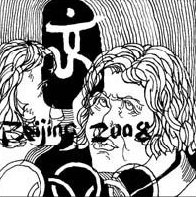Today marks the 30-day countdown to the opening of the 29th Olympic Games.
The media have reported that state leaders of about 80 countries will come to Beijing to attend the opening ceremony of the Games. French President Nicolas Sarkozy was the latest to express his intention to attend the gala event on August 8. Earlier he had said he might boycott the Games pending the result of the talks between Beijing and the Dalai Lama.
Over a period of time, there has been some clamor in a few countries calling for boycotting the Beijing Olympic Games. Some politicians and social celebrities were particularly vociferous in advocating a boycott of Beijing. This is understandable because politicians and celebrities, especially those from the entertainment industry, need constant public attention. Blaming China is always a felicitous topic and an effective way to establish an image of a hero.
Statesmen, however, should be farsighted and know more about the art of handling international relations. This knowledge includes that about the people and culture of the nation they are dealing with in a particular event.
What EU Chamber of Commerce President Joerg Wuttke recently said about having dealings with Chinese people provided much food for thought. He urged European leaders to learn from Australian Prime Minister Kevin Rudd, who "knows Chinese people's character and ways of thinking pretty well" thanks to his many years of studying and working in China.
Wuttke is right. Chinese people have their own way of thinking, just as Western people have theirs.
Take the hosting of the Beijing Olympic Games as an example. Chinese people regard it as an important event that merits the whole nation's devotion to its success. This explains why China has been working hard on the face-lift of major cities' environment and why the Chinese demonstrated what many Westerners thought to be a "crazy" enthusiasm during the Olympic torch relay.
Two things account for

this Chinese-style patriotism. First, Chinese people believe in collectivism in their innermost nature whereas patriotism is the supreme form of collectivism; second, Chinese people tend to attach the greatest importance to a matter of honor. Olympic Games is a rare occasion in which an unprecedentedly large number of foreigners will come. The Chinese are a nation of hospitality. For them, any event that will attract many guests should be run in style.
Some Western media jeered China for its ardent effort to prepare for the Games. They should try to understand the Chinese culture. And, honestly, it is universal for a family to tidy its home before hosting a friends' gathering. Does a Western man not tuck those pairs of his smelly socks under the sofa before opening the door to let in a visitor?
Threats to boycott the Beijing Olympic Games grievously hurt the hospitable Chinese people. We have been sincere in anticipation of the arrival of guests but find that there are so many people in this world who are hostile to us; at least they are doubtful about our sincerity.
Frankly, we do not need the Olympic Games to prove anything. Not to mention what we have achieved in the past three decades, the numerous disasters that have happened to China in the first half of this year and our triumphs over these difficulties are evident enough of the good quality of our people, the strong national unity, the government's and the people's anti-disaster capability and the strong economic power to back this ability.
Is making the Games a success more difficult than fighting the freezing snowstorms in January, the devastating earthquake in May and the ruinous floods that swept across many provinces recently?
E-mail: liushinan@chinadaily.com.cn
(China Daily 07/09/2008 page8)